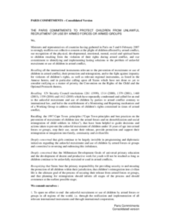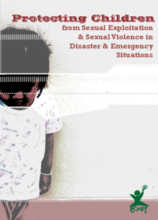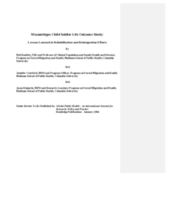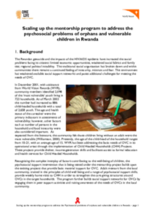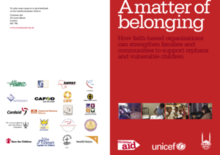Displaying 431 - 440 of 516
The Paris Commitments to protect children from unlawful recruitment or use by armed forces or armed groups. These principles revise and expand on the Cape Town Principles developed in 1997.
UNICEF's global statistical report on progress against MDGs and other key child-focused indicators.
Introductory material for the Free Children From War conference held in February 2007 in Paris, France. Includes background, goals, and a short statistical summary detailing the achievements of care and reintegration programs since 1998. Lists the 1997 Cape Town Principles.
This Guide provides a number of practical strategies, tips and activities for working with stakeholders to prevent student dropout. Based on the work of CRS/Kosovo, this information is useful for other organizations and government bodies working on student dropout prevention and response within the region.
Evaluation of four child-focused DDR projects funded by the World Bank Multi-Country Trust Fund in the DRC. Includes detailed strategic analysis and recommendations.
A practical guide for local and communtiy based organizations about how to protect children from sexual abuse and exploitation in disaster and emergency situations.
Preliminary findings on life outcomes of Mozambican former child soldiers. Identifies specific interventions important to enabling former child soldiers’ recovery and reintegration.
Outlines the results of World Vision Rwanda’s mentorship program for children in child-headed households and other OVC. Includes challenges and lessons learned.
The report details the scale and nature of migritaion by children entering the United States. It includes policy analysis and recommendations around the protection of seperated and unaccompanied children.
A guide for faith-based organizations working in developing countries on issues related to orphans and vulnerable children. Contains examples of successful community-based and family support care programs throughout the world that are run by faith-based groups. Discourages the use of institutional care and orphanages.

